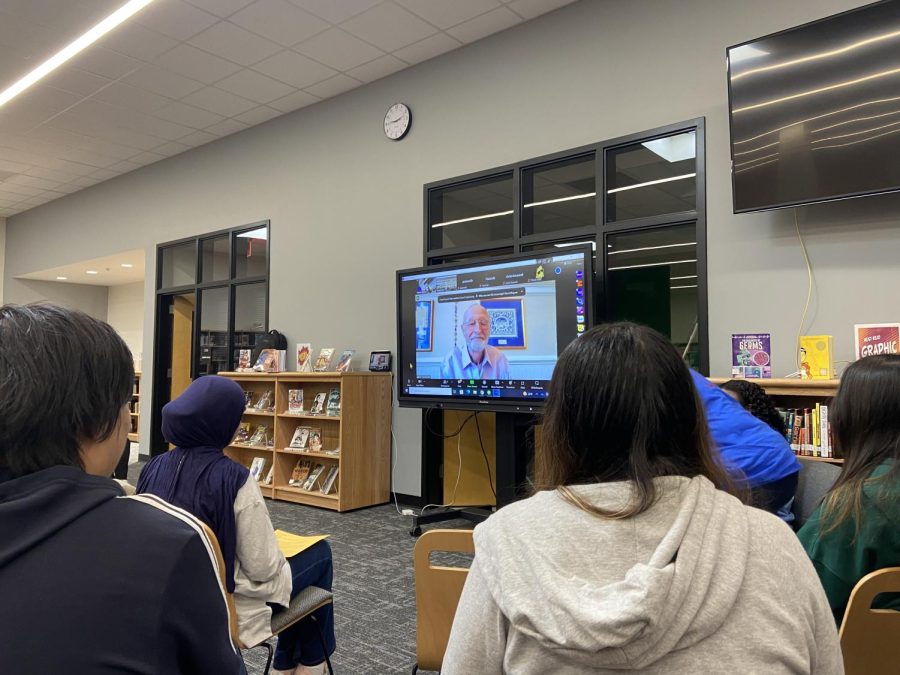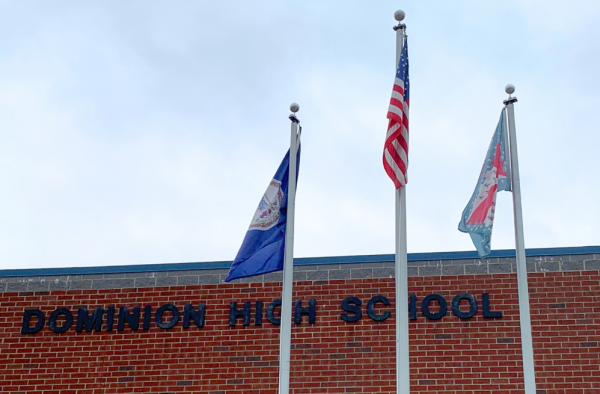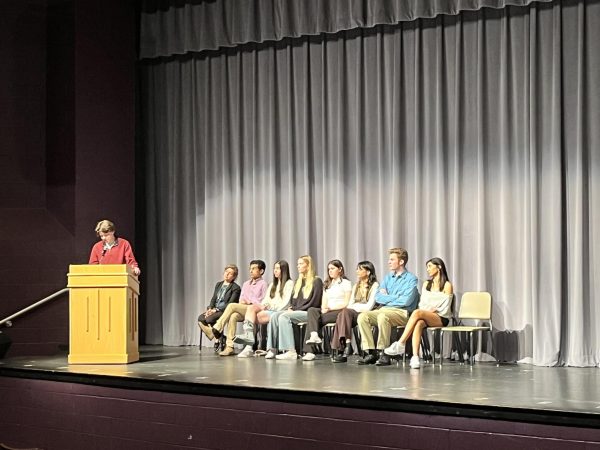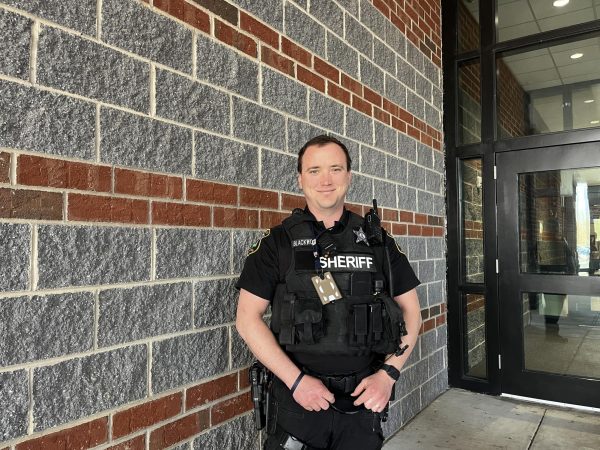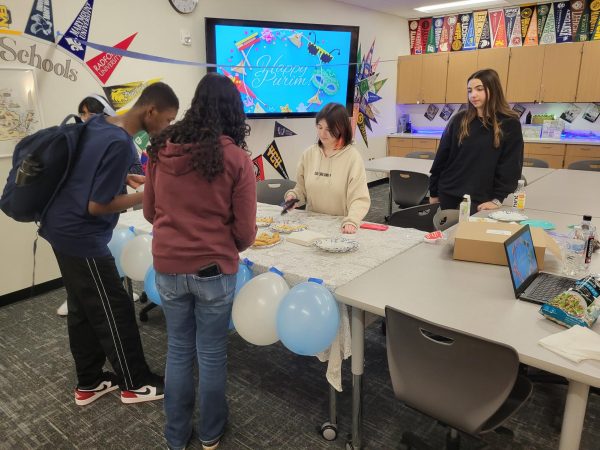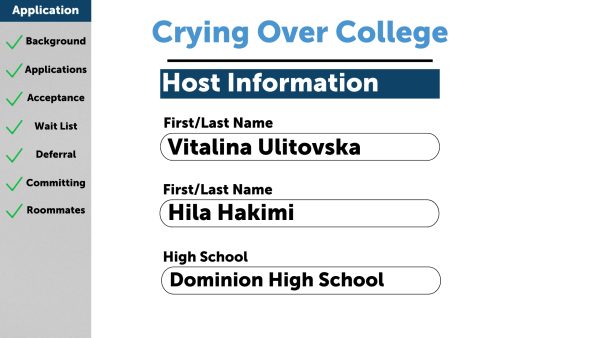Holocaust Survivor Virtually Comes to Dominion High School in Honor of International Holocaust Remembrance Day
Dr. Arye Ephrath shared his survival story and message with over 150 students in attendance.
“It doesn’t seem like we have learned any lessons,” said Holocaust survivor Dr. Arye Ephrath to the over 150 students in attendance at the Friday, January 27 zoom call in honor of International Holocaust Remembrance Day.
Students had the rare opportunity to hear from Dr. Ephrath from the United States Holocaust Memorial Museum in an event organized by Nicole Korsen and the Jewish Student Union, where he shared his experience which he calls “The Story of Anicka Mierni” with students and reflected on the frightening reality of antisemitism in America today.
Ephrath was born on April 7, 1942, the first day of the deportation of jews from his hometown, Bardejov, Slovakia (Czechoslovakia at the time) to Auschwitz. The first three years of Ephrath’s life were spent in hiding and at two years old he was disguised as a girl named Anicka Mierni, hiding with a shepherd’s family in Sisov, Slovakia.
“Why am I telling you this story today?” asked Ephrath to the gathered students and teachers. He presented examples of antisemitic actions found just in Virginia in recent years including anti semitic fliers, signs, posters and the violent Neo-Nazi rally in Charlottesville in 2017. “Eighty years ago America paid dearly in blood to [fight] fascism and here it is 80 years later,” he said.
After sharing his testimony, Ephrath emphasized the gravity of hateful speech and actions. “It’s not just words, it’s deeds, words lead to deeds,” he said. Ephrath said that when the Holocaust started, they couldn’t predict what was to come, “Everyone thought they meant ‘getting rid’ by segregating… it started just with words but it didn’t end with just words. It ended with mass execution,” he said.
Ephrath shared a variety of poems including an excerpt from Martin Luther King Jr.’s “I Have a Dream” speech and “First They Came” by Pastor Martin which describes the isolating effects of not speaking out for others. Member of the Jewish Student Union, junior Lacey Kennedy said, “I really liked how he touched on the themes and messages to take forward like ‘don’t ignore something just because it doesn’t personally affect you’ or ‘don’t let small things turn big.’”
According to Kennedy, the number of students at this years event greatly exceeded last year’s, “I was really happy with how many people were there — I think someone said 150 [people showed] which is crazy because last year there were about like ten, so it was great to see everyone come out in support of the jewish community and standing for no hate in general,” she said.
Nicole Korsen, who led the event with the Jewish Student Union, attributes the increased attendance to the teachers who advertised the event to their classes. Sophomore Jack Hooper heard about the event from his German teacher, “Personally for me, because my aunt and one of my uncles are both jewish and they’ve spoken about the subject before it kinda felt right to go to the speaker,” he said.
In the first three years of Ephrath’s life, his family suffered separation from one another for safety. Shortly after his birth, Ephrath and his mother moved to Hungary while his father stayed in Slovakia under an essential work permit to avoid deportation. In Budapest, Hungary, Ephrath was placed in an orphanage while his mother moved inns frequently to avoid detection since she had false identification to hide the fact that she was jewish. “Now you have to understand how dangerous that situation was… any Jews found to be hiding were shot on the spot and anyone found to be hiding jews were shot on the spot,” Ephrath said.
Ephrath and both his parents were reunited and moved again when his father lost his work permit which had protected him from deportation. His father moved the family to Sisov, a city in western Slovakia where Ephrath’s parents and another couple hid in a church and he and the couple’s son hid with a shepherd’s family, the Miernis. Also, hiding children was incredibly risky, “They were putting themselves in great danger…Jan and Irena did not hesitate one minute,” he said.
Since the Miernis had only daughters, Ephrath and Vicki were urged to disguise themselves as girls to avoid suspicion from neighbors. “I agreed of course, I was two and a half years old, what did I know?” he said.
Despite the little freedoms of playing outside, Ephrath and Vicki had to hide anytime the house had a visitor and Ephrath’s hiding spot was a bin of coal. “Coal does have a very unique smell and I cannot stand it to this day,” he said.
Meanwhile, Ephrath and Vicki’s parents found themselves hiding in a shallow ditch under a pile of hay in a couple’s backyard during the day after their hiding place at the church lost security. “Everyone thought the war would be over in a matter of days but in fact they stayed in the ditch for 8 months,” he said.
Due to being only three years old when the war ended, Ephrath couldn’t understand the significance of the Holocaust when it occurred. “My own biggest struggle was I got to know Jan and Irena as my parents and these two strange people came to pick me up after the war claiming to be my parents,” he said.
After Slovakia was liberated on April 4, 1945, Ephrath and his family returned to their hometown. “When we got back there there was no one left — I was one of 4 children in Bardejov that had survived the war,” he said.
To close, members of the Jewish Student Union held up a sign in front of Ephrath which read, “We Remember.”
“The community of survivors is getting smaller by the day — there is becoming fewer and fewer of us,” Ephrath said.
Read more and watch a recorded interview with Ephrath from the United States Holocaust Memorial Museum here.
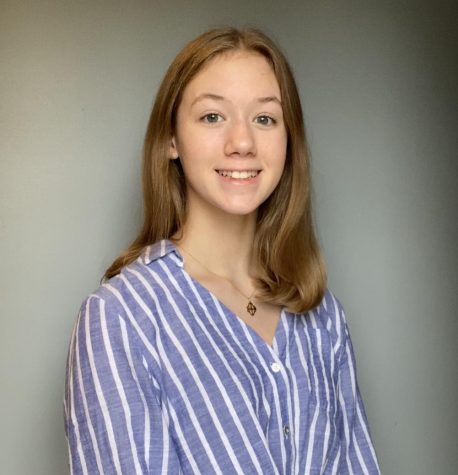
Lilly Cameron is Co-Editor-in-Chief and first began writing for DHS Press in 2020 during her freshman year. She enjoys journalism because it allows her...



